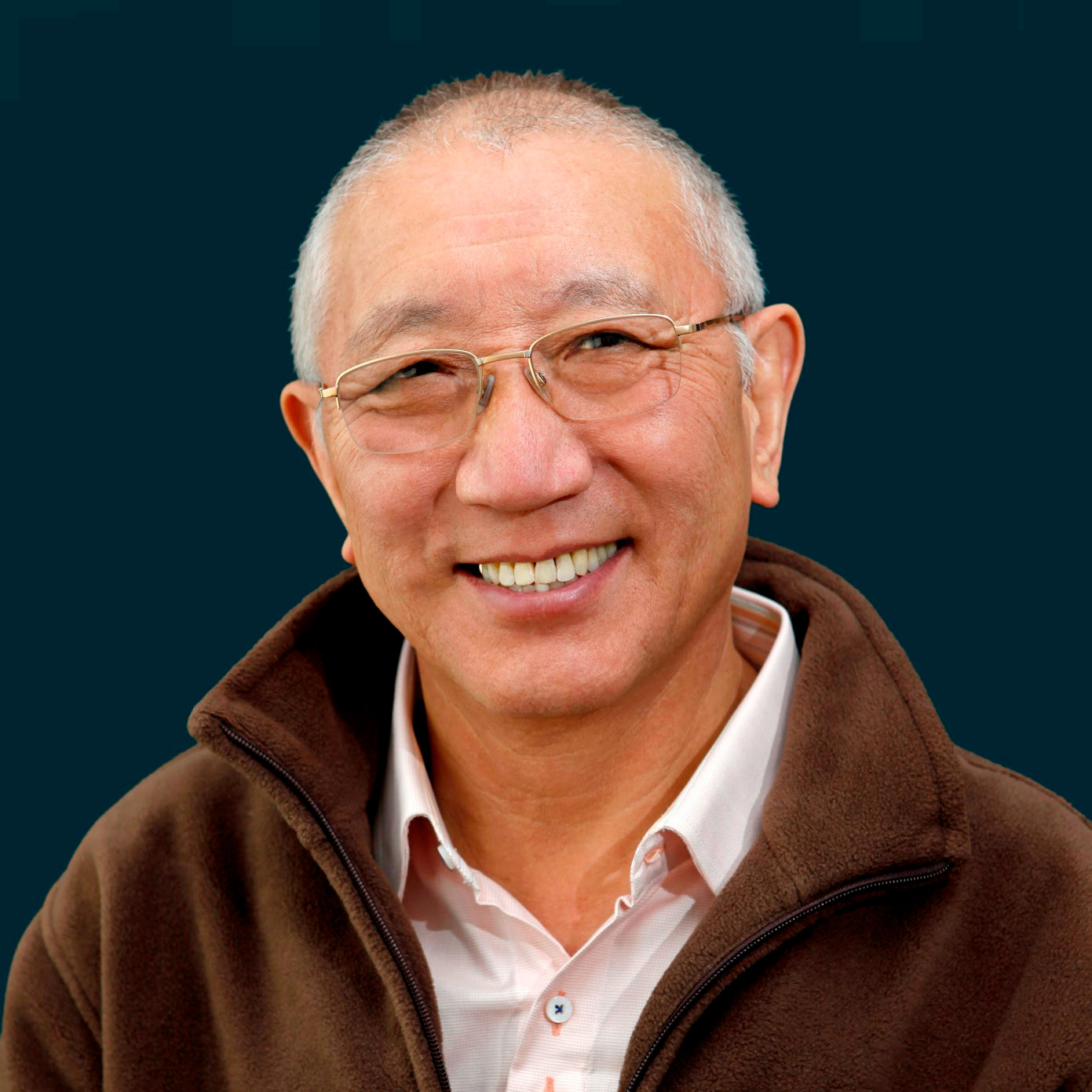
His Eminence Loden Sherab Dagyab Kyabgön Rinpoche was born in East Tibet in 1940. At the age of four he was recognized as the 9th Kyabgon (protector) of the region of Dagyab. Rinpoche is one of the highest tulkus in Tibet. In 1959, Rinpoche escaped with His Holiness the Dalai Lama to India. From 1964 to 1966, he directed Tibet House in New Delhi, an internationally recognized institute for the preservation and support of Tibetan culture.
H.E. Dagyab Rinpoche came to Germany in 1966 in response to an invitation from Bonn University to work as a Tibetologist at its Institute for Central Asian Studies. In the 1980’s, due to the explicit request of people interested in Buddhism, he became active as a spiritual teacher for Europeans. The Buddhist community, Chödzong, came into being as a result of this collaboration and together with Rinpoche founded Tibet Haus Germany.
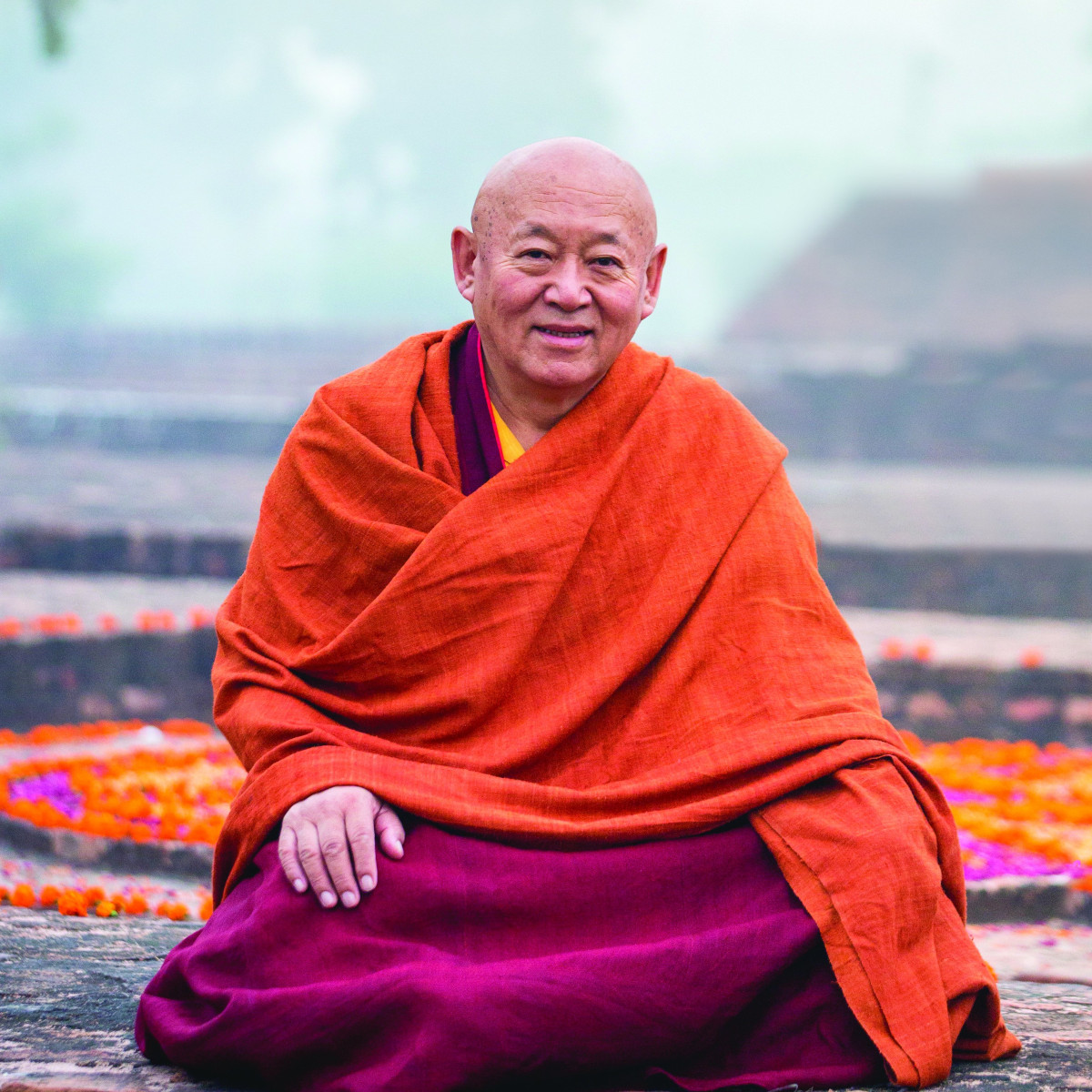
His Holiness Drikung Kyabgon Chetsang, the 37th throne holder of the Drikung Kagyu Lineage and 7th reincarnation of the Chetsang Rinpoche was born in 1946 in Tibet.
In 1975 he decided to escape Tibet. He set out alone and without help to cross the border of Tibet into Nepal. He eventually arrived at the residence of the Dalai Lama at Dharamsala, India. Afterwards he traveled to the USA, where his parents had emigrated in the meantime. There he learned English, while earning his living as a part-time at a McDonald’s and other restaurants.
After three years in the USA he returned to India in 1978, to take on the lead of the Drikung Kagyu Lineage as its throne holder. In 1985, Drikung Kyabgon received full monk’s ordination from His Holiness the Dalai Lama during the Kalachakra initiation in Bodhgaya. Since 1987 Chetsang Rinpoche began to give teachings in many countries throughout the world. He has also established many monateries and educational insitutitions.
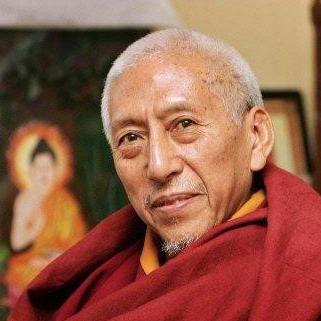
Venerable Professor Samdhong Rinpoche was born as Samdhong Lobsang Tenzin in 1939, in the Tibetan province of Kham. At age five, he was recognized and enthroned as the reincarnation of the fourth Samdhong Rinpoche. He began his monastic studies at age 12 at the University of Drepung in Tibet and eventually obtained a Doctorate in Buddhist sciences at Gyütö Monastery, Dalhousie, India in 1970. In 1959, Rinpoche fled to India to escape the repressive Chinese government in Tibet. There, he was commissioned by His Holiness the Dalai Lama to serve as a teacher to monks in exile. He was appointed director of the Central Institute of Higher Tibetan Studies in Varanasi in 1988 and remained there until 2001. On July 29, 2001, Rinpoche was named Kalön Tripa, or Prime Minister of the Tibetan Exile Government, the first political leader to be directly elected by the people in exile.
He is an eminent and distinguished scholar, teacher and philosopher, and a life-long campaigner for Gandhian principles especially that of non-violence or peaceful resistance.
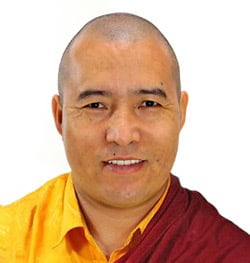
His Eminence Gala Rinpoche was born in 1980. At the age of 10 joined the Tibetan Children’s Village School at Dharamsala, India, and completed his high school education from the same school. At the age of sixteen, Rinpoche was recognized by His Holiness the Dalai Lama as the 7th reincarnation of Gala Tulku, a reincarnated teacher from the Batha Monastery in Kham Dege, Eastern Tibet.
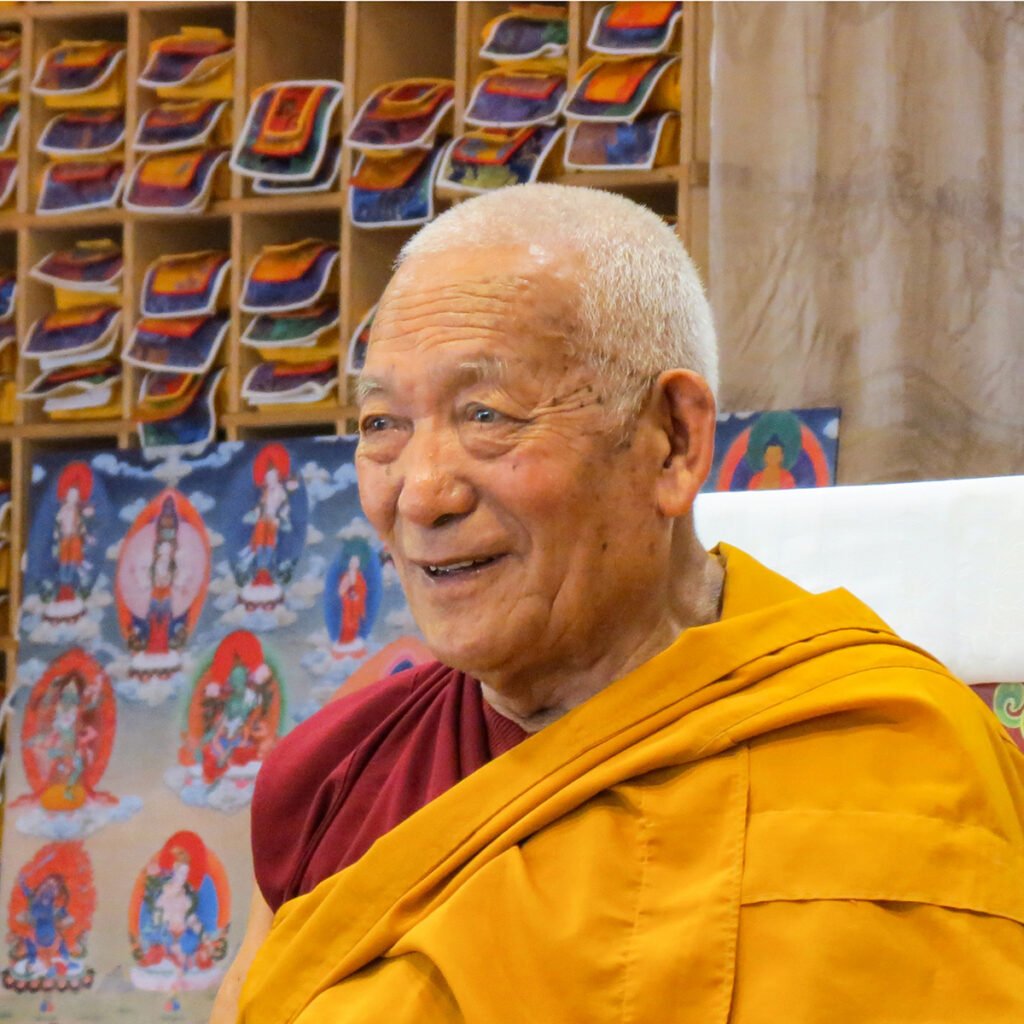
Geshe Yeshe Thabkhe is a genuine contemplative master and a member of the last generation extensively trained in old Tibet. He received his monastic education at Drepung Loseling Monastery and, in 1969, was awarded the Geshe Lharampa, the highest degree of scholarship conferred within the Geluk School of Tibetan Buddhism. He is Professor Emeritus of Buddhist Philosophy at the Central University of Tibetan Studies, the only Tibetan university in India. His scholarly work includes a translation of The Essence of Good Explanation of Definitive and Interpretable Meanings (Tib. Lek-Shey Nying-Po) by Tsongkhapa into Hindi, and A Commentary on the Rice Seedlings Sutra (Skt. Salistamba Sutra) by Vasubhandu. He has facilitated numerous other research works, including the complete translation of Lama Tsongkhapa’s The Great Treatise on the Stages of the Path to Enlightenment (Tib. Lam Rim Chen Mo), a major project undertaken by The Tibetan Buddhist Learning Center in New Jersey, where he teaches regularly. Jewel Heart has had the honor of hosting Professor Geshe Yeshe Thabkhe for many years. He has given teachings on diverse topics and texts, including the first eight chapters of Aryadeva’s Four Hundred Stanzas on the Middle Way.
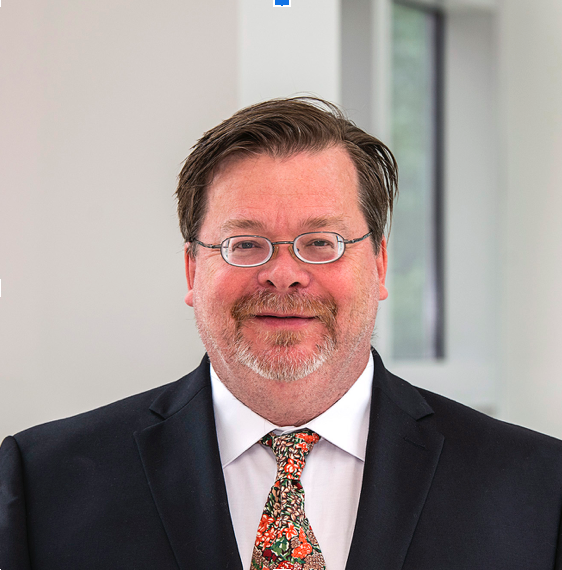
Anthony (Tony) King, PhD is a student of Kyabje Gelek Dorjechang and a Jewel Heart Instructor. He is also an Associate Professor of Psychiatry and Behavioral Health and Psychology (joint appointment), the Anne K. “Nancy” Jeffrey Endowed Professor for Mental Health Equity and Resilience, faculty of the Institute for Behavioral Medicine Research Institute (IBMR), and director of the STAR Trauma Recovery Center and Program for Resilience at The Ohio State University College of Medicine, and member of the State of Ohio Adversity and Resilience (SOAR) Study scientific leadership team. Dr King is a psychotherapist and licensed psychologist. He is also a neuroscientist and conducts clinical and translational research on the neuroscience of meditation and its positive effects on mental wellness, mindfulness-, Mind-Body, and compassion-based psychotherapy, and psychedelic-assisted psychotherapy for treatment resistant depression and chronic posttraumatic stress disorder (PTSD). He is nationally certified in Mindfulness-based Cognitive Therapy (MBCT), Cognitive Behavioral Analysis System of Psychotherapy (CBASP), and Psychedelic Assisted Therapy, and author of over 75 peer-reviewed scientific papers and book chapters. His research has been funded by NIMH, NCCIH, Dept of Defense, and foundations, and has been reported on by media outlets including US News and World Report, the Huffington Post, MedScape, Science Daily, and others.
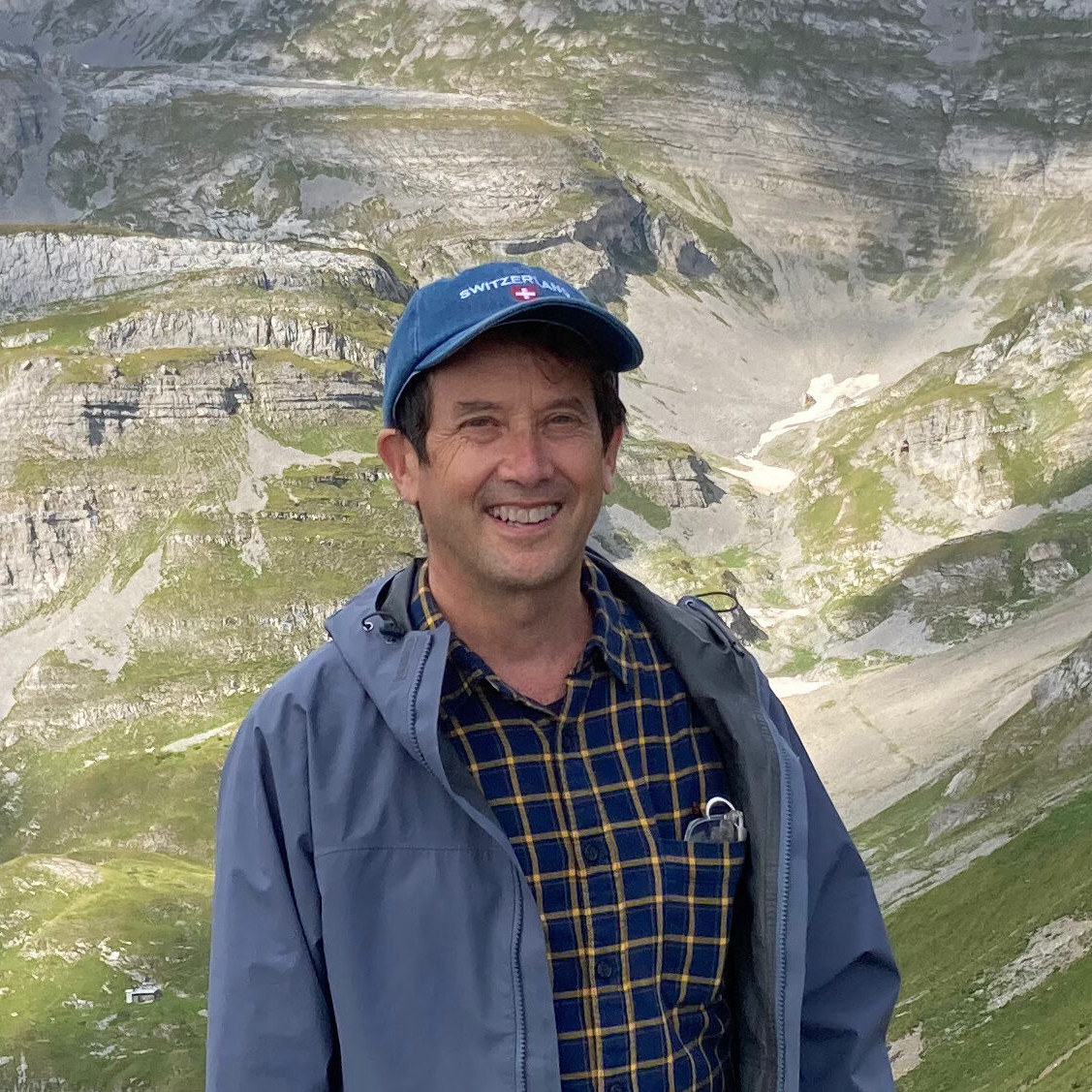
David Mellins is a scholar of Buddhism, Indian Philosophy and Sanskrit Poetics. He received his PhD from Columbia University and has taught at Columbia, Rutgers and Yale Universities. He currently works as a translator of Indo-Tibetan Buddhist scriptures for 84,000 where he specializes in Dhāranī literature. He has lectured at conferences and seminars throughout Europe and Asia and was the co-director of the Buddhist Translators Workbench, a digital humanities project based in Berkeley, California.
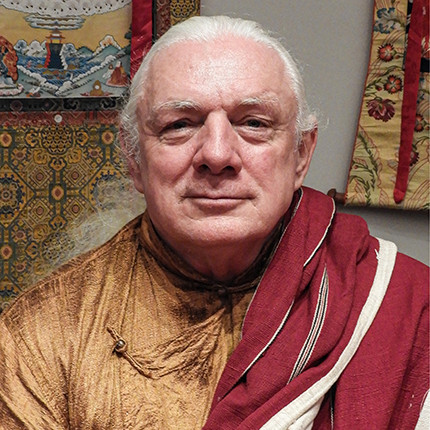
GLENN MULLIN has been a long time friend of Gelek Rimpoche and Jewel Heart. He is a Tibetologist, Buddhist writer, translator of classical Tibetan literature, and teacher of Tantric Buddhist meditation. He studied philosophy, literature, meditation, yoga, and the enlightenment culture under thirty-five of the greatest living masters of the four schools of Tibetan Buddhism. Glenn is the author of over 30 books on Tibetan Buddhism, founded and directed the Mystical Arts of Tibet, and has curated a number of important Tibetan art exhibitions. He divides his time between writing, teaching, meditating, and leading tour groups to the power places of Nepal and Tibet.
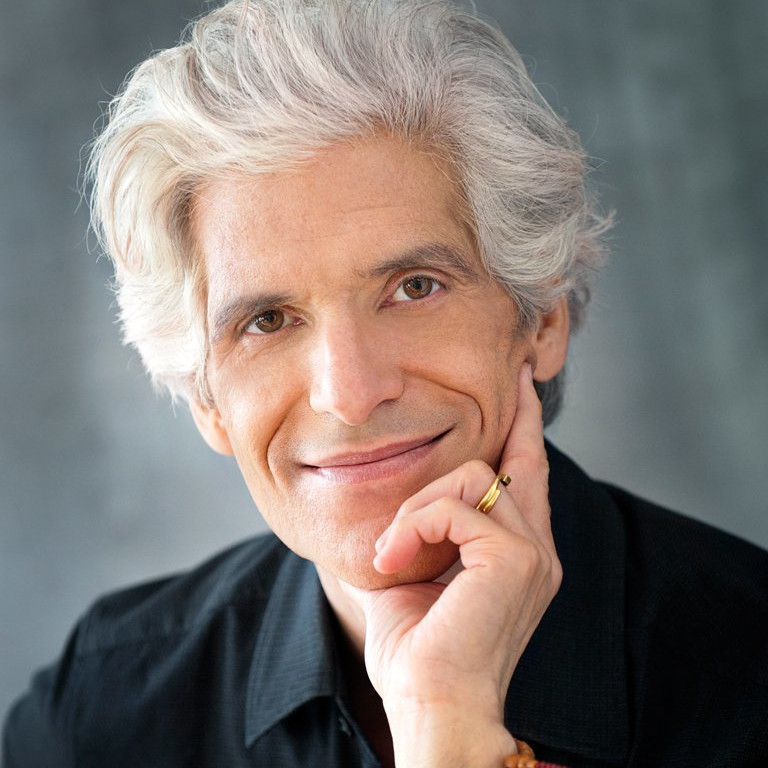
Joseph Loizzo, M.D., Ph.D. is a contemplative psychotherapist, clinical researcher, and business consultant who integrates ancient contemplative science and technology with contemporary breakthroughs in neuroscience and optimal health. He founded Nalanda Center for Contemplative Science and is on faculty at the Weill Cornell Center for Integrative Medicine and the Columbia University Center for Buddhist Studies. He has published books, translations, and several articles and also has a private practice in Manhattan.
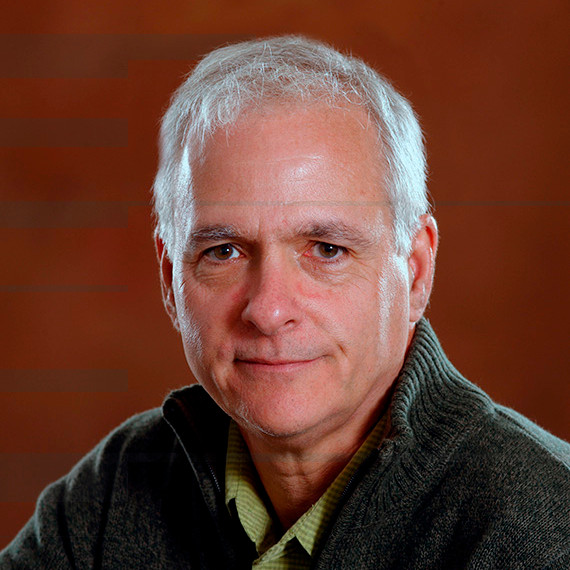
Guy Newland, Professor Emeritus, Central Michigan University
Guy Newland––newly retired after thirty-seven years as Professor of Religion at Central Michigan University––is an editor and translator the Great Treatise on the Stages of the Path to Enlightenment and an editor and translator of the Dalai Lama’s teachings on that text (From Here to Enlightenment). His teachers have included Jeffrey Hopkins, Geshe Yeshe Thabkhe, Geshe Palden Drakpa, and Geshe Losang Gyatso. Guy has published many articles and books on Buddhist philosophy including A Buddhist Grief Observed, Introduction to Emptiness, The Two Truths, Appearance and Reality, Changing Minds, Moonshadows, and Moonpaths.
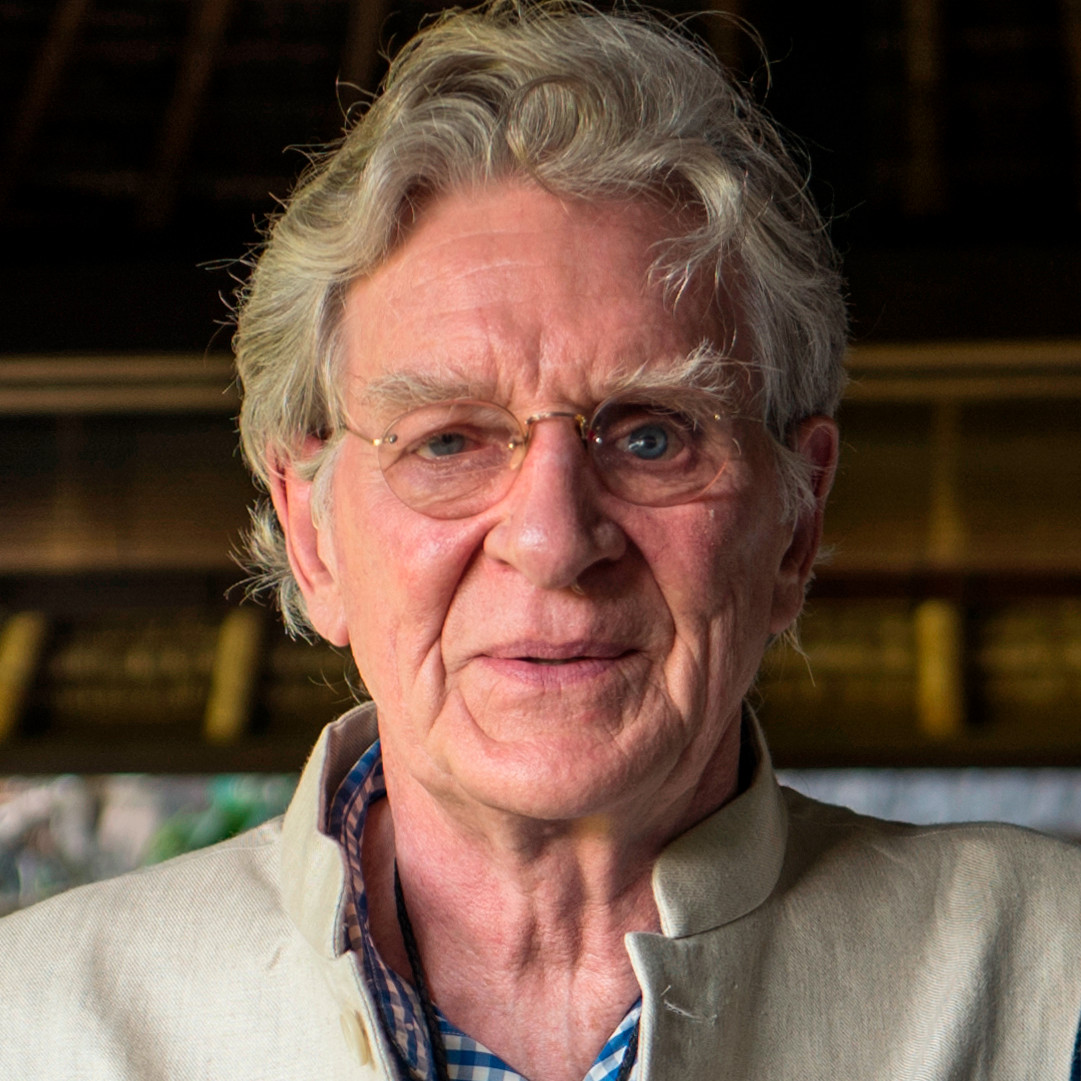
Bob Thurman, known in the academic circles as Professor Robert A.F. Thurman, is a talented popularizer of the Buddha’s teachings, the first Western Tibetan Buddhist monk ordained by His Holiness the Dalai Lama, and was a longtime close friend of Gelek Rimpoche.
A charismatic speaker and author of many books on Tibet, Buddhism, art, politics and culture, Bob was named by The New York Times as the leading American expert on Tibetan Buddhism. Time Magazine chose him as one of the 25 most influential Americans in 1997, describing him as a “larger than life scholar-activist destined to convey the Dharma, the precious teachings of Shakyamuni Buddha, from Asia to America.”
Bob served as the Jey Tsong Khapa Professor of Indo-Tibetan Buddhist Studies in the Department of Religion at Columbia University for 30 years, until 2020. A very popular professor, students always felt his classes were “life-changing”.
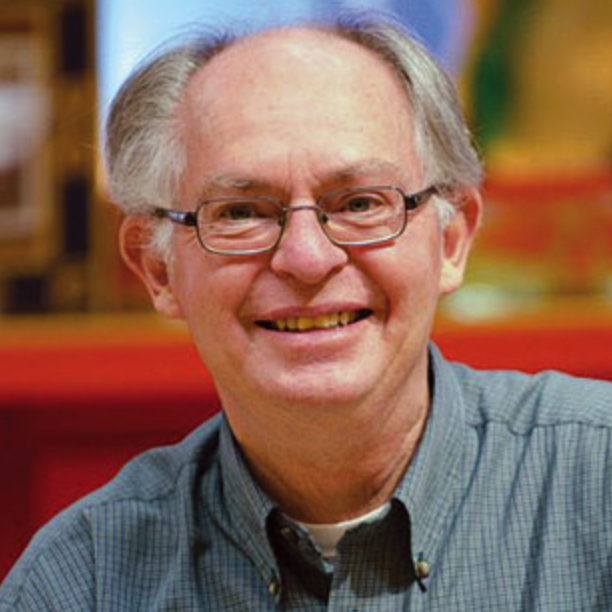
Roger Jackson’s research and writing interests include Indian and Tibetan Buddhist philosophy, meditation, and ritual; Buddhist religious poetry; and modern Buddhist thought. Among the topics on which he has published are the Kalachakra Tantra, Dharmakirti’s philosophy of religion, Tibetan literature, Buddhist “theology,” the songs of the Indian mahasiddhas, and Mahamudra.
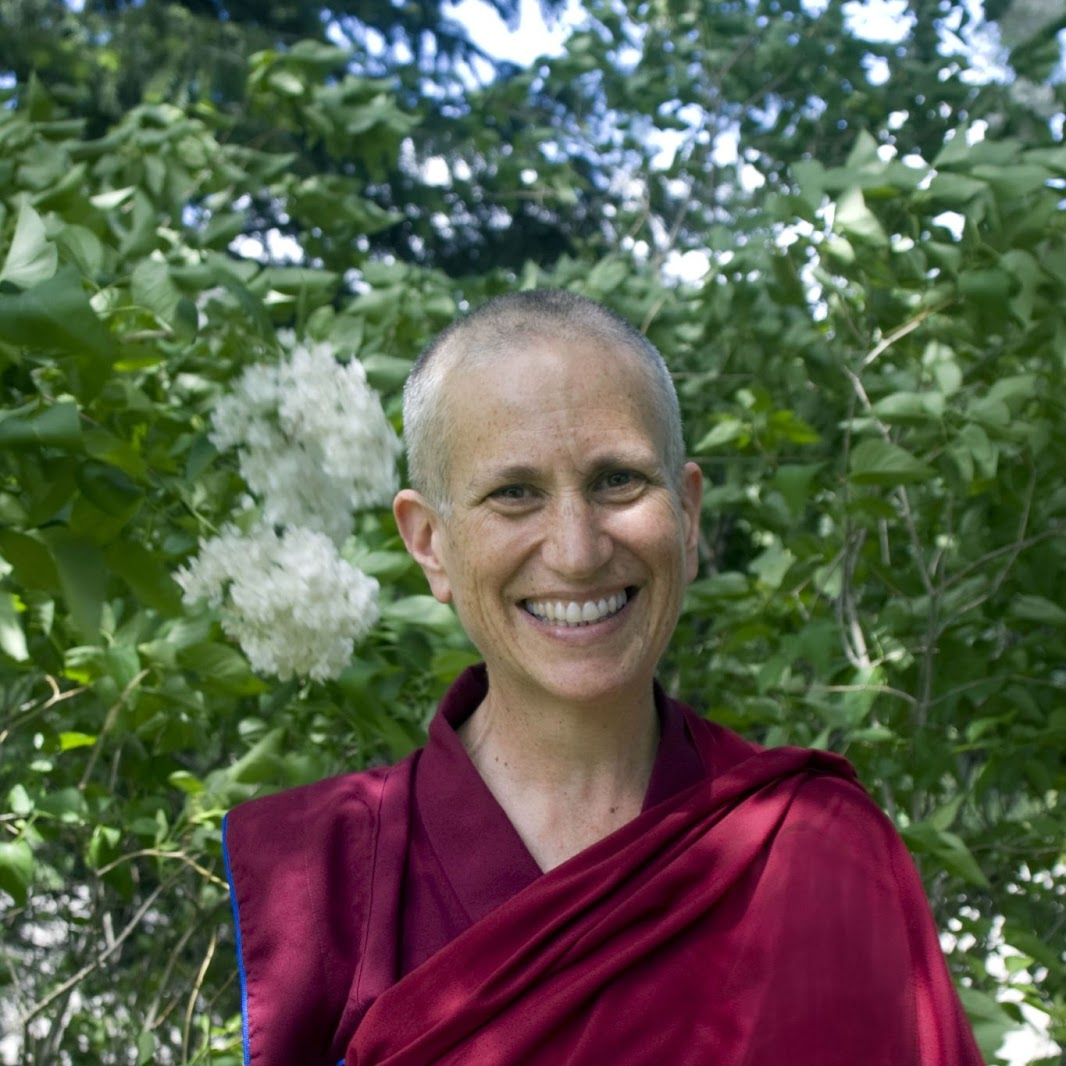
Venerable Thubten Chodron graduated from UCLA, and did graduate work in education at USC. Ordained as a Tibetan Buddhist nun in 1977, she has studied extensively with His Holiness the Dalai Lama, Tsenzhap Serkong Rinpoche, and Kyabje Zopa Rinpoche. She received full ordination as a bhikshuni in 1986.
Ven. Chodron teaches worldwide and is known for her practical explanations of how to apply Buddhist teachings in daily life. She is also involved in prison outreach and interfaith dialogue. She has published many books on Buddhist philosophy and meditation, and is currently co-authoring with His Holiness the Dalai Lama a multi-volume series of teachings on the Buddhist path, The Library of Wisdom and Compassion.

